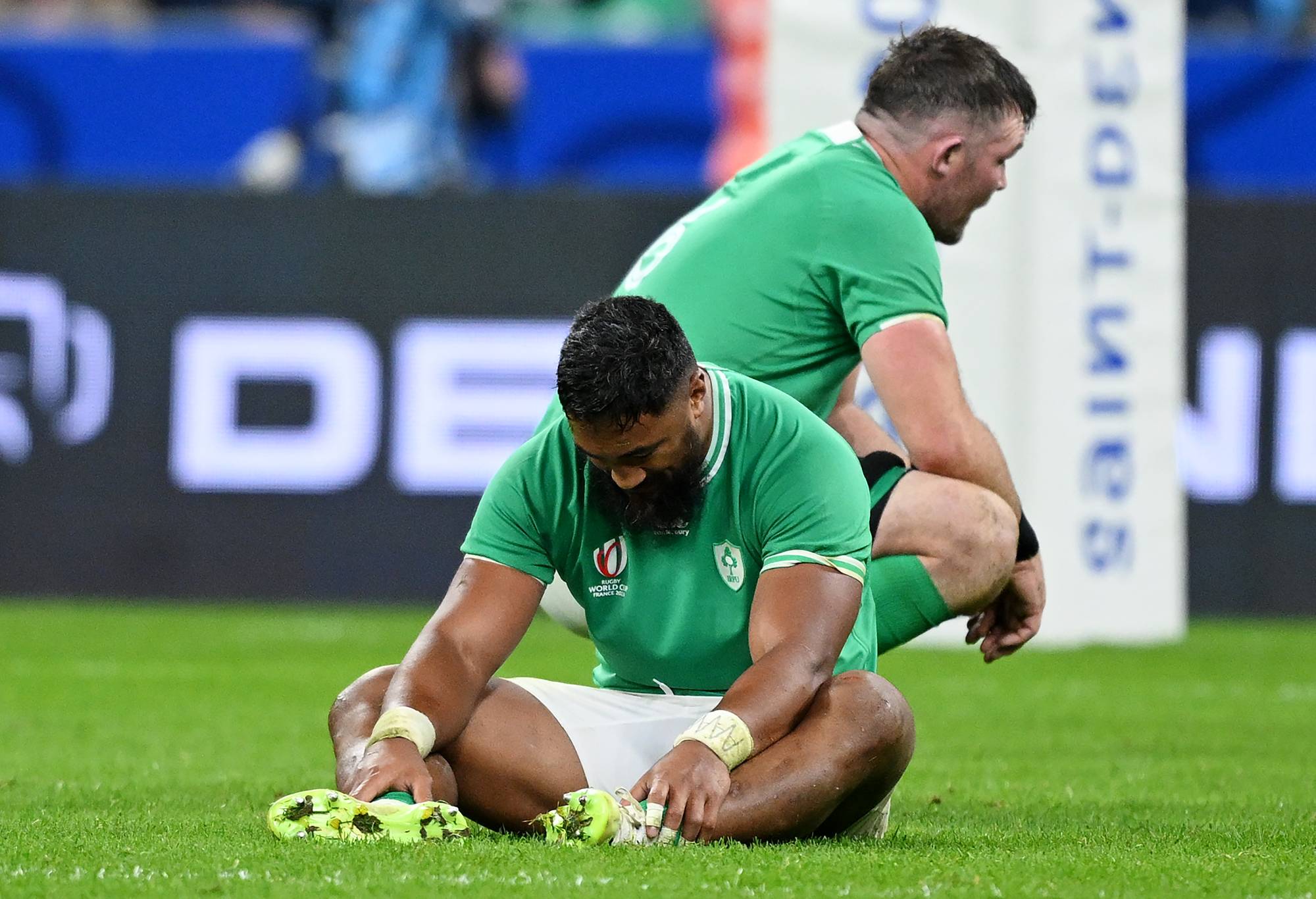Big names out and no clear favourites – who’ll win the Six Nations in 2024?

The 2024 Six Nations kicks off this weekend with Ireland’s match against France in Marseille. Irish coach Andy Farrell has picked a strong side, with Peter O’Mahony as captain.
The main point of interest for Ireland is who will be the starting fly-half, after Jonny Sexton’s retirement after last year’s World Cup. The main contenders are Jack Crowley and Harry Byrne. While both are good players, neither are in Sexton’s league.
It will be interesting to see how Ireland progress through the tournament, especially considering the mixed fortunes of last year.
Ireland’s Bundee Aki after losing to New Zealand in the Quarter Finals. (Photo by Hannah Peters/Getty Images)
While Ireland won another Grand Slam and came top of their pool in the Rugby World Cup, they once again failed to proceed past the quarter-final stages of the tournament.
It’s some consolation that Ireland had gone into the match against New Zealand as favourites, which would have been unthinkable even 10 years ago. It shows the enormous strides Irish rugby has made over the years. It’s something to be proud of.
Yet while Ireland goes into this year’s 6 Nations as reigning champions they can’t really be considered favourites, at least not as strongly as last year. There are many strong contenders for the championship this year.
This year’s 6 Nations will be one of the most open tournaments in recent memory, with no clear favourites. Focusing on the forms of the teams during the last World Cup, it is difficult to pick an outright winner.
England’s Ben Earl scores a try. (Photo by Mike Hewitt/Getty Images)
England achieved the best result of the 6 Nations sides in the World Cup, reaching the semi-finals and eventually winning the 3rd place play-off. It was a great result for a team that had been quite poor in the lead in to the tournament.
England will want to carry that form into this year’s 6 Nations, though they will be without Owen Farrell who has been one of their star players in recent years. Farrell is taking time off from international rugby for personal reasons, which is commendable.
A lot was expected of hosts France to do well in the World Cup. France started strongly with a win against New Zealand in the opening game of the tournament but were knocked out in the quarter-finals by South Africa.
France have been one of the strongest teams in recent years and will want to maintain that status, though they will be without their star scrumhalf Antoine Dupont, who has chosen to miss the tournament to play in the rugby sevens at the Paris 2024 Olympic Games.
France’s Antoine Dupont is going to miss the Six Nations to prepare for the sevens at the Paris Olympics. (Photo by Hannah Peters/Getty Images)
Wales managed to top their World Cup pool but lost quite heavily to Argentina in the quarter-finals. Wales also saw some of their recent stars retiring, like Alun Wyn Jones, so it will be a new look team we see this year.
Scotland failed to reach the knockout stages of the World Cup for the first time in their history. They will want to put it all behind them and focus on looking ahead.
And it will be the first season that Ireland do not have a top fly-half in 30 years – Before Sexton there was Ronan O’Gara; before O’Gara there was David Humphreys; and before Humphreys there was Eric Elwood, who started in 1993!
Still, it’s a new look Irish team and it will be very exciting to see what they can accomplish in the months and years ahead.
On a sad note, the game of rugby had to say goodbye to a real legend of the game, with JPR Williams passing away recently. He had been a star for both Wales and the British and Irish Lions and considered probably the best full-back in history.
Welsh rugby legend JPR Williams. (Photo by PA Images via Getty Images)
He started playing for the club Bridgend and was capped for Wales as a teenager. He moved to London to pursue a medical career and joined the London Welsh club.
London Welsh was a cornerstone of the great Welsh rugby of the ’70s, with seven players from the club been picked for the 1971 British and Irish, which remains a record. Along with JPR, club captain John Dawes, Gerald Davies and Mervyn Davies, were also legends of that era.
JPR was capped 55 times for Wales and played in their grand slam winning sides in 1971, ’76 and ’78. He also played all 8 tests for the Lions on both of their all conquering tours in 1971, and ’74 to South Africa. He also starred in that wonderful match in 1973 between the Barbarians and New Zealand.
JPR, which stood for John Peter Rhys, was also a brilliant tennis players who won junior Wimbledon at the age of 15. He gave so much to the game and was respected around the rugby world. The only player to be known by his initials! He will be missed
